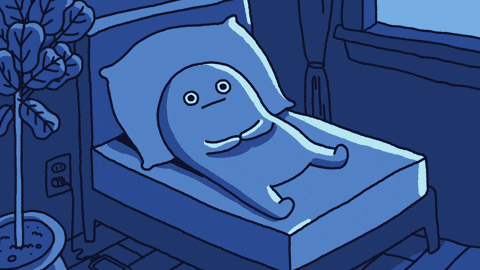Beyond the Food Struggle: Understanding Rejection Sensitivity in Disordered Eating
May 05, 2025
When we think about disordered eating patterns, we often focus on the food itself—what's being eaten, how much, and when. But beneath these behaviors lies a complex web of emotional experiences that can include shame, isolation, and most significantly, rejection sensitivity.
The Hidden Connection
As a life coach working with clients who struggle with disordered eating, I've noticed striking parallels between their experiences and what researcher Sarah Peyton describes as Rejection Sensitivity Dysphoria (RSD). This isn't coincidental. The same neural pathways that light up when we experience rejection are often active in those with problematic relationships with food.
My clients frequently describe:
- Intense emotional reactions to perceived criticism about their bodies or eating habits
- Anticipating judgment before it happens (often in social eating situations)
- Misreading neutral comments as attacks on their worth
- Isolating themselves to avoid potential rejection
- Directing disgust inward rather than recognizing external factors
The Unconscious Contract
One of the most powerful insights from Peyton's work is the concept of "unconscious contracts" or unconscious limiting beliefs we make with ourselves. For those struggling with food issues, these contracts often look like:
"I promise to blame myself for my eating behaviors so I don't have to acknowledge the pain of rejection."
"I vow to focus on food as the problem so I don't have to face how deeply I've been hurt."
"I will hate my body so others don't have to reject me first."
These contracts serve as protection mechanisms but ultimately reinforce isolation and shame.
The Magic of Trusted Connection
This is where true transformation begins. In our membership community, we've witnessed the profound shift that happens when people find a space where they can come exactly as they are—no masks, no pretending, no performing.
When someone with disordered eating first joins our group, they often arrive carrying what Peyton might call "alarmed aloneness." They expect judgment. They anticipate rejection. They believe they must hide their struggles to be accepted.
But something remarkable happens when they encounter genuine resonance instead:
- The nervous system begins to calm in the presence of acceptance
- Shame loses its grip when met with understanding rather than criticism
- Self-blame transforms into self-compassion through witnessed experiences
- The ability to differentiate between real rejection and perceived threats grows stronger
Our members often describe the first time they shared openly about their underlying issues as terrifying—and then transformative. "I thought everyone would be disgusted with me," one member shared. "Instead, I saw heads nodding in recognition. It was the first time I felt truly seen."
Breaking the Cycle Through Resonance
Healing in community offers unique opportunities for the three approaches Peyton recommends:
- Body-centered awareness: In group settings, members practice noticing physical sensations and thoughts without judgment, supported by others doing the same work.
- Time travel to formative moments: Sharing stories of pivotal rejection experiences allows for collective witnessing and healing. When one person names their pain, others recognize their own.
- Releasing unconscious contracts: The group becomes a laboratory for trying new ways of relating—to ourselves, to others, and to the reasons we go to food. Together, members practice replacing old contracts with new possibilities.
Where the Magic Happens
The most profound healing doesn't happen in isolation. It unfolds in the brave space between people who are committed to authentic connection.
In our membership community, we witness magical moments when:
- A member speaks the unspeakable and discovers they're not alone
- Someone risks being seen with their imperfect relationship with food and experiences acceptance
- A person who has always blamed themselves realizes the systemic and cultural forces at play
- Members practice accompaniment when they hear each other's internal critics, eventually learning to do the same for themselves
These experiences literally rewire the brain's rejection sensitivity circuits. When the amygdala expects punishment but receives understanding instead, new neural pathways begin to form.
The Path Forward
If you struggle with disordered eating and recognize yourself in these patterns of rejection sensitivity, please know that you don't have to walk this path alone. In fact, the most direct route to healing may be through connection rather than solitary effort.
Consider:
- Finding a community where you can practice authentic sharing without fear
- Building relationships that offer resonance rather than criticism
- Learning to recognize your rejection sensitivity as it arises
- Practicing collective compassion as an antidote to self-blame
The journey from isolation to connection, from shame to acceptance, is not a straight line. But with each moment of being truly seen and accepted, the old contracts lose their power, and new possibilities emerge.
Have you experienced the healing power of community in your relationship with food? What shifts have you noticed when shame meets understanding? I'd love to hear your experiences in the comments.
Stay connected with news and updates!
Join our mailing list to receive the latest news and updates from our team.
Don't worry, your information will not be shared.
We hate SPAM. We will never sell your information, for any reason.
Categories

